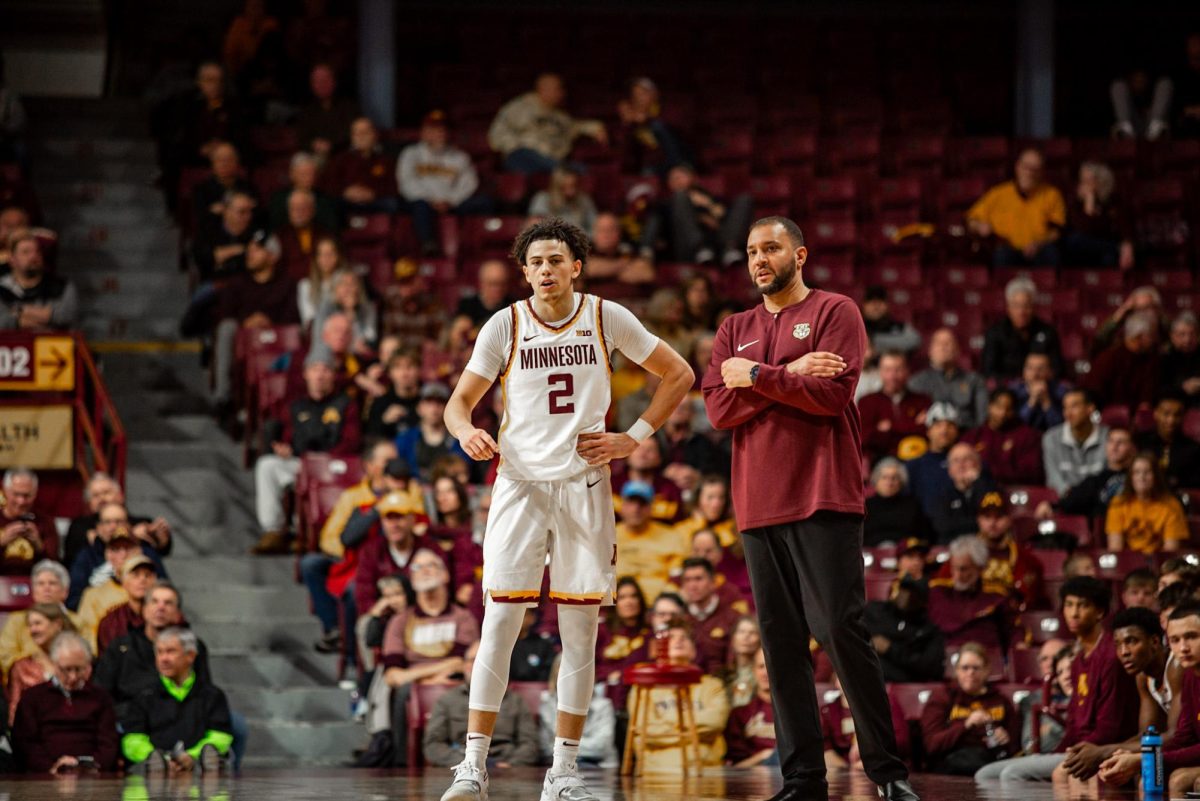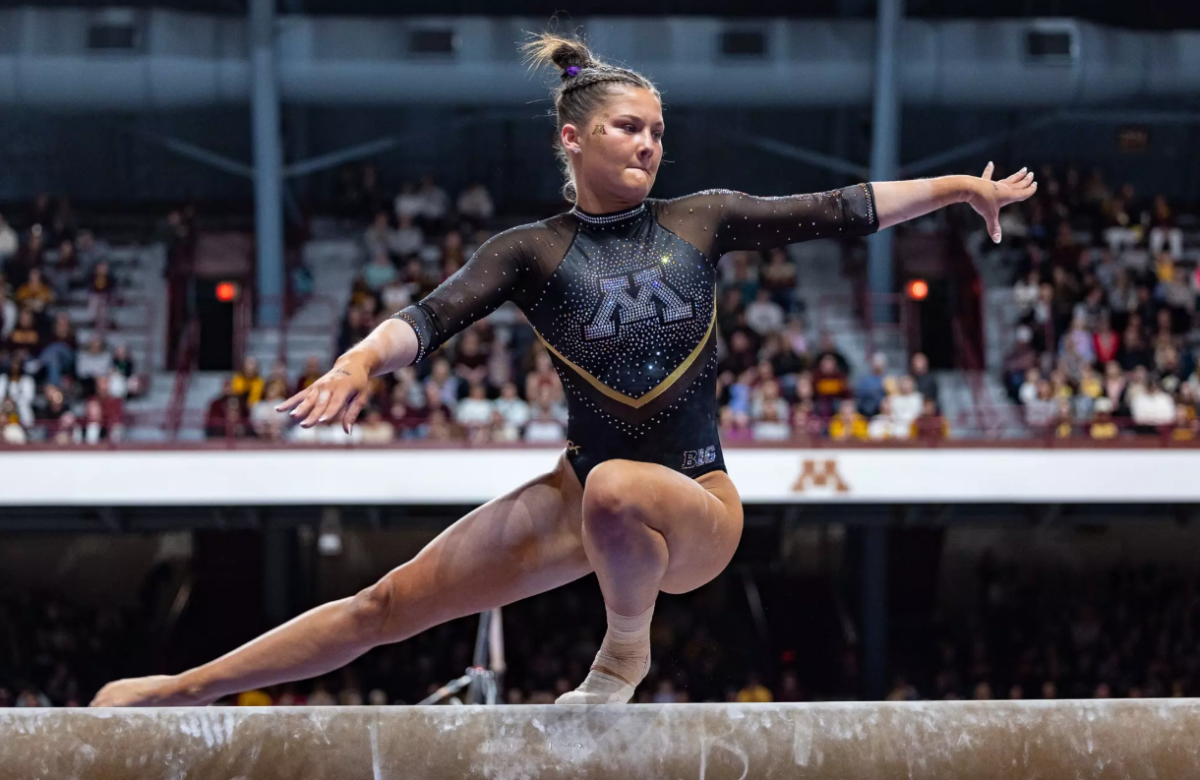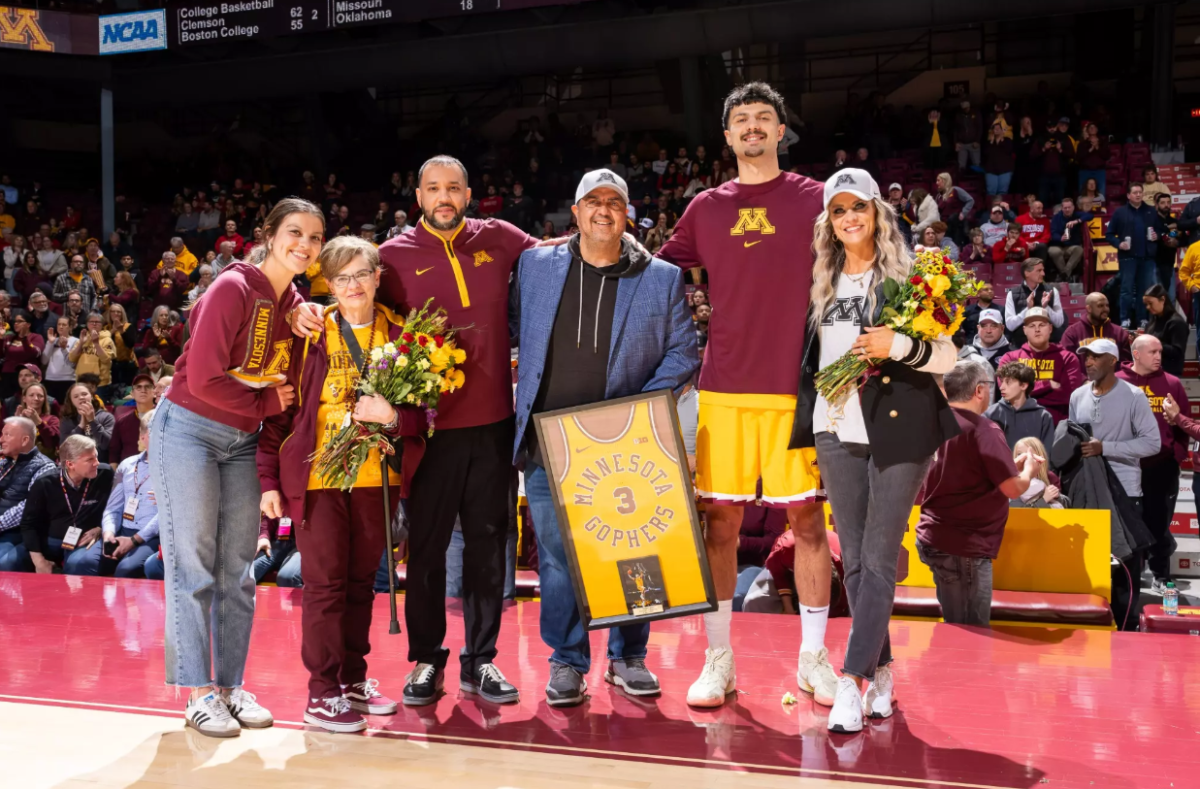Adam Steele and Mitch Potter have been waiting for this moment.
The former captains of Minnesota’s men’s track and field team will be two of the top 400 runners during this week’s U.S. Olympic trials in Sacramento, Calif., which begins Friday. Potter has the nation’s sixth-fastest time this year in the 400 meters and Steele has qualified with a top-10 time.
Although clearly each his own person with his own philosophies – Steele’s training diet consists of balanced proteins and carbohydrates, while Potter has no problem eating fast food – the two Minnesota natives will be grouped together once again in their common quest for a place on the U.S. Olympic team.
Steele and Potter noticed the benefits of training together early in their Minnesota careers. But they became permanently linked after finishing first and third, respectively, in the 400 at the 2003 NCAA Championships, and earning gold medals as members of the U.S. 4×400-meter relay team at the 2003 World Championships.
With their top finishes, the Minnesotans surprised the track world. As soon as they crossed the finish line, expectations began to mount for 2004.
But as the indoor and outdoor seasons progressed, Steele and Potter weren’t exactly dominating their collegiate competitors.
Potter said a combination of factors, like lingering injuries and increased school commitments, led to their drop in performance.
“We both battled injuries, and I was student teaching as well in the spring,” Potter said. “I was hardly making it to practice and I just didn’t have the energy to put in the time.”
By the end of the outdoor season Potter fell from third to ninth in the NCAA Championships. Steele, the defending national champion, failed to make the finals.
“In the last year I’ve been at the top and I’ve been at the bottom,” Steele said. “Right now I’m at the bottom.”
Despite capping their collegiate careers in what they called a disappointing fashion, Steele, Potter and Minnesota coach Phil Lundin maintain that they were cautious during the season because of the priority placed on the Olympic trials.
“I don’t think I did as good a job preparing them for Big Tens and NCAAs,” said Lundin, who is also coaching the two for the trials. “But the year’s focus has always been on the Olympic trials for those guys.”
For Steele and Potter, making the U.S. Olympic team would finally mean lasting respect.
“This year the novelty has worn off,” Steele said. “People expect more from us and we expect more from ourselves. People are waiting for us to finally make a move.”
If pride isn’t enough, Steele and Potter can use their opportunity to chase some dollars.
The trials will be their first as professionals, enabling them to accept endorsements if offered by shoe companies or otherwise. Typically runners are already under endorsement contracts before the trials, but a portion of the endorsement money is saved for college athletes who perform well.
Making the Olympic team would virtually guarantee that Steele and Potter would be able to put their degrees on the shelf for a while.
“It’s the potential to have a professional career,” Potter said. “If I run well I can make enough money to practice every day, lift weights Ö just devote all the time I need to live the life I want to live.”
Despite the lure of fame and fortune, both Steele and Potter have greater motivations.
Potter’s dream
Despite the satisfaction of respect and the promise of money, Potter said he can’t let them into his mind when he steps into the starting blocks Sunday. Instead, the overriding factor that drives him is his lifelong dream of making the Olympics.
“I told my mom from the beginning that I was going to make the Olympics one day,” Potter said. “I’ve been dreaming about it since I was a kid and now it’s staring me in the face.”
In order to realize his dream, Potter said he has to actually think like the kid that dreamt it.
“I have to get out and run like I’m in second grade again,” Potter said. “I just have to go out and look the other guys in the eyes and run past them. I need to focus on that one-on-one competition where the past doesn’t matter.”
Potter said he will sometimes push his body beyond its threshold, which leads him to slow down at the end of a race or even cause injury.
He also said he will sometimes push his eating habits with an unorthodox diet, which is based on what he feels like eating.
“I’m the worst eater in the world, but it’s worked so far,” Potter said. “I’d trade a bike for a burrito.”
Steele’s Dream
The easiest way to relate Steele’s motivation for running is by flipping Potter’s mentality upside down.
“We definitely see things differently when it comes to a lot of track-related stuff,” Steele said. “For Mitch it’s always all or nothing. That’s just Mitch. There’s no real way to explain it.”
Instead of thriving mainly on competitive emotion, Steele said he likes to back his thoughts up with research – which explains his Academic All-America Honors.
While examining his chances, Steele said the Olympics are within his grasp because of his recent training and results in 2003.
“I need to go in and run seasonal bests in every race, and I’m ready for it,” Steele said. “I did it last year (at NCAAs) and I can do it again.”
When it comes to handling pressure, Steele knows how much significance making the Olympic team would have on a possible running career.
“It’s the biggest thing of the year,” he said. “It’s the biggest thing of my life.”
Steele said he keeps things in perspective because of the inspiration of his brother, Matt Steele, who is a U.S. Army Ranger stationed in the Middle East.
Adam Steele said family has always played a big part in his career. His sister, Melissa Steele, runs for Minnesota’s women’s track team and his parents come to many of their meets. But Adam Steele said it wasn’t until his brother was serving the country in war that he realized how fortunate he was.
“I’m just thankful that I have this opportunity,” Adam Steele said. “You see the flag everywhere at the races and we get all this attention, but I would think he represents us better than me.”







